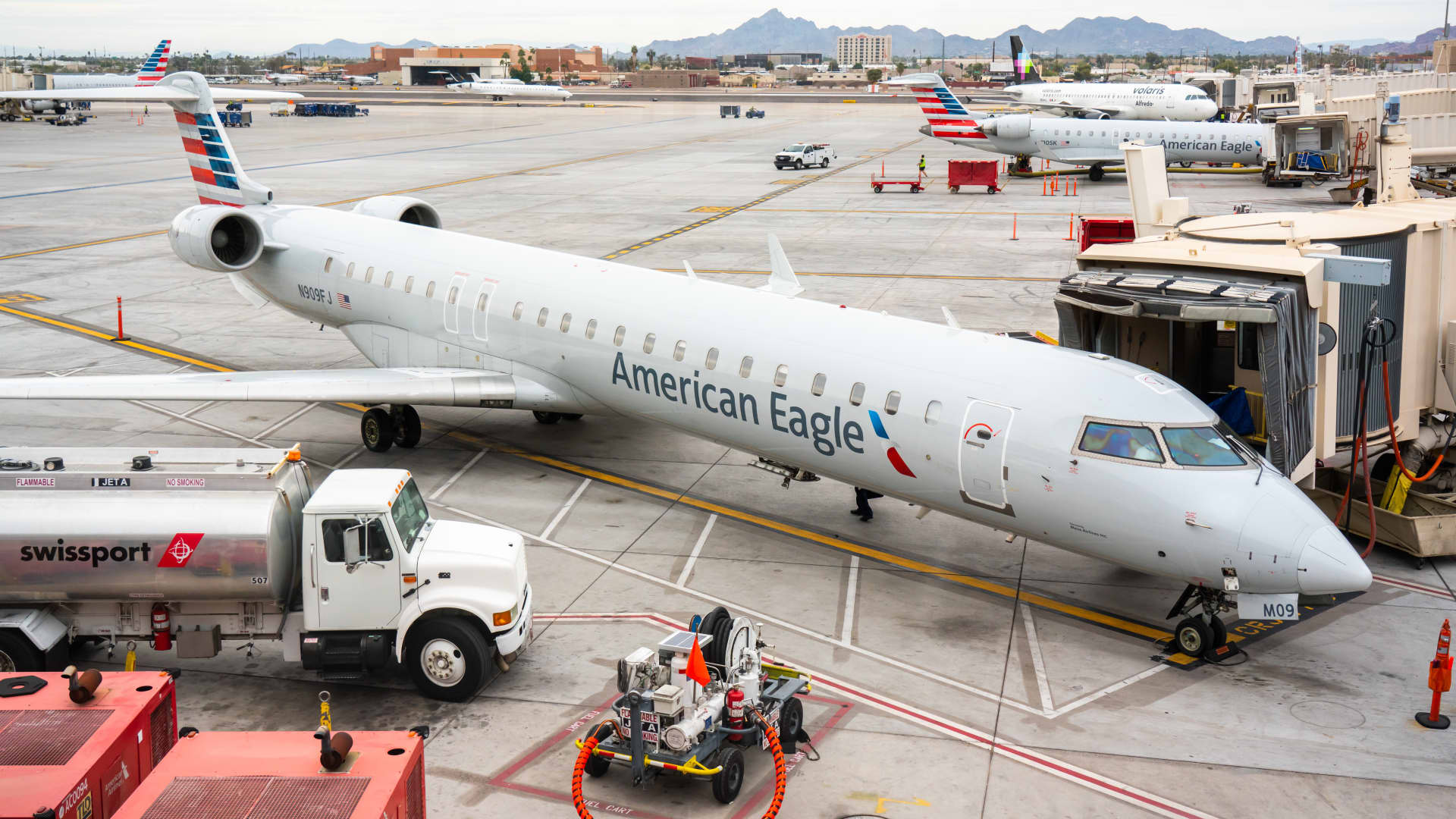American Eagle Bombardier CRJ-900ER aircraft seen at Phoenix Sky Harbor International Airport.
Alex Tai | SOPA | Getty Images
American Airlines said Saturday that it will drop Mesa Air for some of its regional flying, citing concerns about its partner’s financial and operational problems, issues that are tied to a rise in costs and the industry’s pilot shortage.
“As a result, we have concerns about Mesa’s ability to be a reliable partner for American going forward,” Derek Kerr, American’s chief financial officer and president of American’s regional brand American Eagle, said in a staff note, which was seen by CNBC on Saturday. “American and Mesa agree the best way to address these concerns is to wind down our agreement.”
The final Mesa flight for American will be on April 3, though American is slashing Mesa flights in March, Kerr said in his note.
Now, Arizona-based Mesa is planning to transition “all of our CRJ900 flying to United Airlines,” a carrier it already flies for, Mesa’s CEO Jonathan Ornstein said in a note to staff on Saturday, which was seen by CNBC.
United declined to comment.
Large carriers like American, United and Delta Air Lines routinely contract regional airlines to fly many shorter routes, and they account for roughly half of departures, though that varies by airline.
The heart of the problem stems from a shortage of pilots, which is most acute at regional carriers, and has become more severe since travel demand snapped back after a pandemic travel slump. Mesa and other regional airlines have sharply raised wages to attract and retain aviators. American raised wages at its regional subsidiaries.
American declined to fund higher pilot rates for other regional partners, Mesa’s CEO told staff, adding that they were penalized for not being able to meet pre-Covid contract obligations.
“With that in mind, we are excited to announce we have negotiated a wind down of our operations with American and are finalizing a new agreement with United which would transition all CRJ900s currently flying for American Eagle to United Express,” Mesa’a Ornstein said.
American didn’t comment on the Mesa note to staff.
Mesa had a net loss of about $67 million in the nine months ended June 30, according to a securities filing. Last week, the airline postponed its quarterly earnings report.
As of Sept. 30, 2021, about 45% of Mesa’s revenue came from American and 52% from United, according to the company’s last annual filing, which was published a year ago. Mesa also flies for DHL.
American said its agreement with Mesa was mostly tied to its hubs at Dallas/Fort Worth International Airport and Phoenix Sky Harbor International Airport.
American plans to concentrate its flying with its wholly owned regional subsidiaries like Envoy and PSA, as well as an independent regional carrier SkyWest. Air Wisconsin will also fly for the American Eagle brand, starting its agreement earlier than originally planned, Kerr said.
“The flying previously done by Mesa will be backfilled by these high-quality regional carriers as well as our mainline operation, ensuring we can continue to build and deliver the very best global network for our customers,” Kerr wrote.


